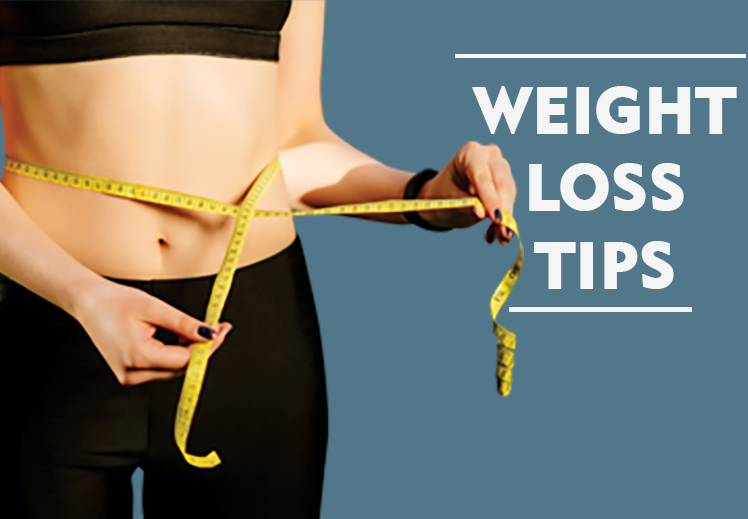The term ‘overweight‘ means a person having more body weight than what is considered to be normal for a certain height. Overweight is an gathering of excessive fat, which is very harmful for our body health. People become overweight or obese, when they consume more calories than their need. Extra calories store in the form of fat.
Cases Of Overweight :
- Seated lifestyle: Keeping your body active on a daily basis is a huge factor in preventing weight gain from happening. A study has shown that those who participate in physical activity or any sort of movement are less likely to accumulate fat, while those who are not able to perform any activity are more prone to carrying excess weight.
- Alcohol: Drinking alcohol can be responsible for bloating, weight gain, and decreased digestion. Alcohol affects the body in many ways, including bloating, weight gain, and decreased nutrition uptake. Alcohol also causes stress on the stomach and can lead to decreased digestive function. This can all contribute to a decrease in the ability of the body to break down food into the nutrients that it needs.
- Sugary food and drinks: Studies have shown that food and drinks containing sugar are directly linked with body fat. This is because of the more refined sugar that is added during processing. Extra sugar is responsible for your weight gain. Being overweight increases the risk of heart disease, kidney disease, non-alcoholic liver disease, tooth decay and cavities, among other things.
- Stress: Many people experience high levels of stress hormone cortisol, which is produced by the adrenal glands in response to stress. Overeating can also be a response to stress, and can cause excess calories to be stored in the belly.
- Genetics. Genes also have an important role to play when it comes to being overweight. Genetics can make the body store fat in abdominal areas, for example.
In this article, we provide top 30 tips for weight control.
1. Start your day with a glass of fresh water
Dehydration is one of the cause of fatigue, so it’s important to make sure that your are getting enough water throughout the day. So , it’s very important to start your day with a glass of fresh water. So add this habit in your daily routine to drink a glass of water as soon as you wake up in the morning, it’s a great way to start your day and you will feel more energetic. Not only you will feel less dehydrated, but also you don’t need to eat too much in the breakfast if you’r properly hydrated. Drinking water in the morning help your digestive system to work smoothly. If you are drinking coffee or tea every morning, then make it sure to drink a glass of water afterwards to offset the dehydration effects of caffeine.
2. Stay away from soda
Sodas are packed with lots of sugar. It’s best way to stay away from sweetened sodas as much possible. Diet sodas aren’t much better since they contain other chemicals and components which are harmful for your body. If still you want to drink soda, make sure to drink a glass of water too in order to offset the dehydration effect caused the caffeine.
3. Eat high protein meals
Protein is a very important nutrient if your goal is weight loss and muscle building. It works many different mechanisms which are responsible for weight loss . Protein diet helps in building muscle mass during weight control and increase your metabolic rate. A high protein diet produce hormones which promotes fullness and reduces hunger. People who stay up late at night tend to snack more often, which can create a larger window of time for eating if it’s been many hours since dinner. But protein can have a powerful effect on hunger and the desire to snack at night.
4. Eat fresh fruits and vegetables
Eat plenty of fresh fruits and vegetables that have a high water content to help you stay hydrated and fuller for longer periods of time. These include foods such as tomatoes, watermelons, cantaloupe, kiwi, grapes, among others. These fresh and flavorful options are not only good for you but will also help you reach your weight-loss goals as they contain about 90-95% water. Furthermore, eat fresh fruit instead of processed fruit as the latter contains more sugar and less fiber than the former. By eating more fruits and vegetables you will be able to increase fibre intake.
5. Get enough sleep
Getting enough sleep is crucial for your overall health, including your weight. Fewer than 6-7 hours of sleep is usually defined as short sleep, and it’s directly linked to a higher body index and weight gain.
According to studies, getting proper sleep helps prevent higher calories intake. The opposite is true when you don’t get enough sleep – you may feel hungrier, which can lead to higher daily calories intake.
Lack of sleep can impact the way your brain functions and makes it more difficult to make decisions. You may find it harder to make healthy food choices when you’re tired. But if you get enough sleep, you will be able to make better decisions and choose healthier food.
Staying up late at night can also cause weight gain . if it has been many hours since dinner, It creates a larger window of time for eating,. Going to bed earlier may help you to prevent late night snacking. Try to finish your dinner 2-3 hours before going to bed.
6. Set meal times
For controlling what you eat and when you eat, It’s important to set meal times and stick to them as closely as possible. Eating light meals more often is better for your body than eating 1 or 2 heavy meals a day. When you only eat once a day, your body gets the message that it is starving and starts to store fat instead of using it for energy. Waiting until you’re starving to eat will also make you overeat and feel stuffed. Also try not to eat snack between meals, but if you still taking snack between your meals make sure it is a healthy one.
7. Stay away from fried things
In order to maintain a healthy lifestyle, keep yourself away from fried foods. These fried foods are usually breaded and immersed in fat and oil, which can be very harmful to your healthy even if you train the excess oil away. Eating fried foods increased the risk of heat attack , stroke and heart failure etc. It’s better to opt for baked items instead.
8. Take enough soluble fat
Soluble fiber has the ability to absorb water and turn into gel form during digestion, which in turn slows down the process of food moving through your digestive system. Beta-glucan and glucomannan are two types of soluble fiber that, when mixed with water, create a viscous substance similar to gel. This helps to slow down the movement of food through your digestive system. Studies have shown that by eating more soluble fiber, you can lose weight.
This type of fiber reduces appetite and promotes weight loss by making you feel full, so you eat less naturally. It may also decrease the number of daily calories your body absorbs from food. According to studies, with every 5-10 gram increase in soluble fibre intake every day, the chances of gaining belly fat decrease by 3.7%. Having good, regular digestion can have long term benefits for your health like reducing the risk of cancer, lowering blood pressure etc.
9. Eat raw veggies
Just like fresh fruits, fresh vegetables are also better for you health than those that stored veggies. Vegetables are more beneficial if you can eat them raw. When you cook them you remove all the important nutrients stored in them. If you still want to cook them, try to boil them to the point that there is still some crispness to them. Try to buy organic and pesticide free veggies, that is even better for your health. Not to mention, organic produce typically tastes much better than its conventionally grown counterpart!
10. Ensure you are getting all nutrients
Make sure to include foods from all of the food groups in your diet every day. This is a great way to ensure that you are getting enough nutrients needed by your body and it helps to prevent any deficiencies. Also, don’t eat same food all the time. Try to change or mix it up so you don’t get bored with your diet.
11. Properly chew your food
Did you know that you have to chew your food at least 8-12 times before swallowing? This helps your saliva break down the food so that it can be properly digested, yielding all the necessary nutrients and health benefits your body needs. When you don’t chew your food properly and just swallows large chunks whole, your stomach has to work harder to break it down which can lead to indigestion and other problems.
12. Lower your carbs intake
A low-carbohydrate diet can be very beneficial for weight loss. Reducing carbs in your daily diet can help to control hunger and promote weight loss, without counting calories. Many people think of bread when they think of carbs. White breads are refined and high in simple carbohydrates. They are lower in fiber and may not be as filling as other types of bread. However, it is important to cutting out processed bread and grains can be difficult, but it is very important for people who are looking to lose weight.
Find alternatives to high-carbohydrate foods such as flour and bread. There are many low-carbohydrate vegetables which may eliminate the need for bread altogether. Additionally, there are many flours available which are low in carbohydrates that can be used in everyday items such as almonds flour, nuts and coconut flour.
Avoid packaged snacks – these snacks are not for people who are on a low-carb diet. Most packaged snacks contain high levels of carbohydrates like sugar, flour and potatoes.
13. Don’t give in crash diets
Don’t give in the fad of crash diets. This type of diet is not healthy for you and will do more harm than good in long run. The short term result of this diet may help you to lose a few pounds, but as soon you give up this diet or stick to old one, all the weight will come back or you will be in more worse condition that before. Crash diets are not sustainable and in the end you have to give up. So instead of crash dieting, focus on small changes to you lifestyle so you can stick for a long term. These changes will help you to lose weight in healthy way.
14. Use good virgin olive oil
Use a high-quality Extra Virgin Olive Oil when cooking with oil – it may be higher in price than vegetable oil, but the health benefits are much greater. Olive oil has been linked to reducing the risk of coronary heart disease and helping to increase elasticity of the arterial walls, which reduces the likelihood of heart attack and stroke.
15. Eat less than maintenance calories
Before we can understand how many calories we need to maintain our weight, we need to first understand what calories are and where they come from. Calories are a unit of energy that come from carbohydrates, protein, fat, and sugar. The amount of calories you need daily depends on your individual goals. For example, if you are trying to bulk up, you will need to consume more calories than if you are trying to cut down.
Before you can calculate your maintenance calories, you’ll need to know your recent weight and height, in both metric (kilos and centimeters) and imperial (pounds and inches) units. You can use a calculator to determine your body mass index (BMI). Once you know your BMI, multiply it by your activity level.
For example, let’s say your BMI is 22 and you’re moderately active. 22 multiplied by 1.55 equals 34.1 — so your maintenance calories are about 3,410 per day. If you want to gain weight, you’ll need to eat more than that; if you want to lose weight, you’ll need to eat less than that. And since we want to target belly fat specifically, we’ll aim to eat fewer calories than our maintenance level — in this case, 3,000 per day.
16. Green Tea
We all know that green tea is popular for its many health benefits, one of which is weight loss. Green tea is loaded with antioxidants and contains just the right amount of caffeine to help you lose weight. Studies have shown that the antioxidant EGCG in green tea can help boost weight loss, especially when combined with exercise. A cup of green tea contains less caffeine than a cup of coffee, but just enough to show great results.
Green tea is a great belly fat burning drink thanks to its caffeine and EGCG antioxidant content. These two substances work together to break down body fat into individual cells, and also boost the effects of some fat burning hormones. Once the fat has been broken down, it is released into your bloodstream where it can be used by muscle cells for energy. So if you’re looking for a natural way to burn belly fat, green tea is a great option!
17. Perform aerobic exercise
Cardio exercise is one of the most effective ways to reduce belly fat. Studies show that protein diets alone are not enough, and that exercise is essential for burning belly fat. However, by combining the two – a healthy diet and a workout program to lose belly fat – you will see results in a shorter amount of time. When it comes to cardio exercise, it’s not just about how much strength you have. The duration and frequency of your program are more important factors.
According to recent studies, it takes only 300 minutes of cardio per week to see results – that’s only 30 minutes a day! So if you’re looking to burn some fat, make sure to include aerobic exercise in your daily routine.
18. Perform strength training
Strength training and weightlifting are two of the most effective ways to burn fat and gain muscle mass. Strength training refers to any type of movement in which your body is working against resistance, such as dumbbells, barbells, and weight plates. These strength-training exercises increase your metabolic rate and build lean muscle mass. Lean muscle mass is a type of fat-free tissue that allows you to burn more calories during exercise.
Strength training is an excellent way to improve muscle strength and endurance. It can help you perform everyday activities more easily by providing muscle strength and stability to joints. Studies have shown that the combination of aerobic exercise and strength training is especially effective for people who are overweight. This type of exercise will help you burn fat and increase muscle mass.
19. Avoid surgery drinks and foods
Studies show that sugar is directly linked to belly fat. But losing belly fat is not an easy task, and cutting sugar may be one step in the right direction. Sugar-sweetened drinks like sodas, fruit drinks, sports drinks, energy drinks, and sweetened waters are loaded with fructose. This damages the metabolic system more than other carbohydrates and is more likely to lead to problems like type 2 diabetes and obesity. Also, sugary drinks lead to increased fat in the liver.
Foods high in added sugars but lacking in protein and fibre can cause your blood sugar and insulin level to spike, leading to a short-term energy boost. However, this increase in energy is only temporary and can result in major fluctuations in energy levels. Consistent blood sugar changes can be draining, so it’s important to add a source of complex carbs to your diet that are low in sugar and rich in fibre. You can pair carbs with protein or fat to keep your sugar levels stable and help avoid the rollercoaster ride of highs and lows.
diet chart for loss weight , loss weight diet chart , how loss weight fast , how i loss weight fast , fast weight lose , weight lose tips , weight lose diet plan , weight lose tea , how to weight lose , weight lose exercise , weight lose food , weight lose foods , weight lose pills , how to fast weight lose







